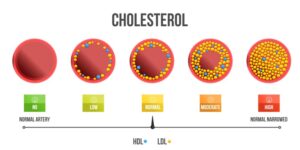Does Mucinex Make You Sleepy? Unraveling the Myths and Facts

In today’s fast-paced world, understanding the effects of over-the-counter medications on our bodies is crucial, especially when productivity is at stake. Among popular medicines, Mucinex, known primarily as a mucus-loosening agent, has often raised questions regarding its effects on alertness. Does Mucinex make you sleepy? Here, we dive deep into the facts and myths surrounding Mucinex and its potential to induce drowsiness.
Also Read:- What Telemedicine Really Does And Its Trends
1. The Basics: What is Mucinex?
Mucinex is a brand name for the drug guaifenesin, an expectorant commonly used to treat symptoms of colds and respiratory conditions by loosening and thinning mucus in the airways. Its primary goal is to aid in clearing congestion.
2. Guaifenesin Alone: A Non-Drowsy Agent
By itself, guaifenesin, the active ingredient in basic Mucinex formulations, is not associated with drowsiness. This means that, for the average person, taking the standard Mucinex should not induce sleepiness.
3. Diving Deeper: Mucinex’s Many Variations
Here’s where the waters get slightly muddied. Mucinex offers a variety of products, each tailored to address a range of symptoms:
- Mucinex DM: This variant contains dextromethorphan, a cough suppressant. While not inherently sedative, some users might experience drowsiness or fatigue.
- Mucinex Sinus-Max and Fast-Max: These formulations combine guaifenesin with other medicines, including decongestants and pain relievers. Depending on individual reactions to these combinations, some might experience sedative effects.
4. Individual Variation: Not One-Size-Fits-All
It’s essential to understand that everyone’s body is unique. While one person might not experience any drowsiness with a Mucinex variant, another might feel slightly fatigued.
5. Other Factors at Play
Often, it’s not just the medication inducing sleepiness. The very symptoms that prompt someone to take Mucinex—like a cold or flu—can themselves cause fatigue. It’s essential to differentiate between the fatigue from illness and any potential drowsiness from medication.
6. Safety First: Mixing Medications
If you’re taking other medicines alongside Mucinex, there’s potential for interactions. Some combinations can enhance drowsy effects. Always consult with a healthcare provider when mixing medications.
7. Recommendations for the Concerned User
- Read Labels Carefully: Ensure you understand what’s in your Mucinex variant. This can guide you on what to expect.
- Start with a Half Dose: If you’re trying a new Mucinex product and are concerned about potential drowsiness, consider starting with a half dose to gauge your body’s reaction.
- Avoid Alcohol: Alcohol can enhance the sedative effects of many medications, including some Mucinex variants.
8. When to Consult a Professional
If you experience extreme drowsiness, or if the drowsiness you experience is impacting your day-to-day tasks, it’s essential to consult a healthcare professional. They can provide guidance tailored to your situation.
9. Conclusion
Mucinex, in its basic form, does not cause drowsiness. However, its variants, combined with individual reactions and other potential factors, can lead to varied effects on alertness. As with any medication, it’s always crucial to stay informed, read labels, and consult professionals when in doubt. Your health and well-being are paramount, and understanding how medications affect you is a vital part of that journey.
FAQs: Does Mucinex Make You Sleepy?
1. What is Mucinex primarily used for?
Mucinex is the brand name for the drug guaifenesin, an expectorant used to treat symptoms of colds and respiratory conditions by loosening and thinning mucus in the airways.
2. Does basic Mucinex cause drowsiness?
No, the primary ingredient in standard Mucinex, guaifenesin, is not known to induce drowsiness in most people.
3. Are there different formulations of Mucinex?
Yes, Mucinex offers various products tailored for a range of symptoms. Some formulations, like Mucinex DM, contain additional ingredients that might affect alertness in some individuals.
4. Can Mucinex DM cause sleepiness?
Mucinex DM contains dextromethorphan, a cough suppressant. While dextromethorphan is not typically sedating, some users may experience drowsiness or fatigue.
5. How can I tell if Mucinex is making me drowsy or if it’s my illness?
Symptoms like cold or flu can themselves cause fatigue. If you feel drowsy after taking Mucinex, consider other factors, such as the severity of your illness or other medications you’re taking.
6. Is it safe to drive or operate machinery after taking Mucinex?
If you’re taking basic Mucinex and experience no drowsiness, it should be safe. However, always monitor how you feel and avoid such activities if you experience any drowsiness or reduced alertness, especially when trying a new formulation.









